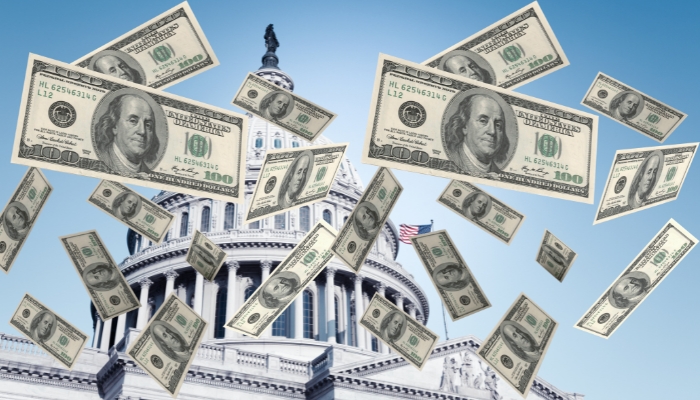US Wealth Soars
Anúncios
Fueled by a resurgent stock market and rising home values, US household wealth reached a historic high of $154.3 trillion in the second quarter of this year, according to federal data.
Consumer wealth has now fully rebounded from the recent drop in stock prices and real estate values driven by inflation.
Household and nonprofit net wealth increased by $5.5 trillion, or 4%, between the end of March and the end of June, according to Federal Reserve data released on Friday. This follows a $3 trillion increase in the first three months of the year. The data is not adjusted for inflation.
This boost in wealth was primarily driven by a surge in the value of Americans’ stock market investments, which grew by $2.6 trillion during the quarter. Real estate holdings, including home values, increased by $2.5 trillion.

Household wealth now stands approximately $2 trillion above the previous record set in early 2022 at $152 trillion. This provides consumers with a buffer to withstand potential economic challenges and an increase in unemployment.
The Federal Reserve began raising interest rates aggressively in March 2022 in response to surging inflation. These rate hikes significantly impacted financial markets, leading to a decline in stock values, a cooling housing market, and concerns about a potential recession. Despite the recent increase, US wealth has changed little over the past year, limiting its contribution to consumer spending.
The stock market’s recovery has paralleled that of the US economy, with Goldman Sachs reducing the probability of a US recession in the next 12 months from 35% to just 15%. Hopes are rising for a soft landing scenario, where inflation is controlled, and a recession is avoided.
Despite the improving economic outlook, public sentiment toward the White House remains negative. A CNN poll revealed that 58% of the public believes President Joe Biden’s policies have worsened economic conditions in the United States, up from 50% last fall. Additionally, a Wall Street Journal poll found that 63% of voters disapprove of the president’s handling of inflation.
There are also signs that some Americans are facing financial difficulties. Credit card debt surpassed $1 trillion for the first time ever during the second quarter, according to the New York Federal Reserve. New credit card and car loan delinquencies have exceeded pre-Covid levels, with Macy’s reporting an increase in customers failing to make credit card payments.
JCPenney CEO Marc Rosen stated that his company’s core customers, working-class families, are increasingly relying on credit cards, falling behind on bills, and switching to cheaper private-label brands. These families, including teachers, construction workers, and healthcare professionals, are encountering a more challenging economic environment.
See also: Wages vs. Inflation



